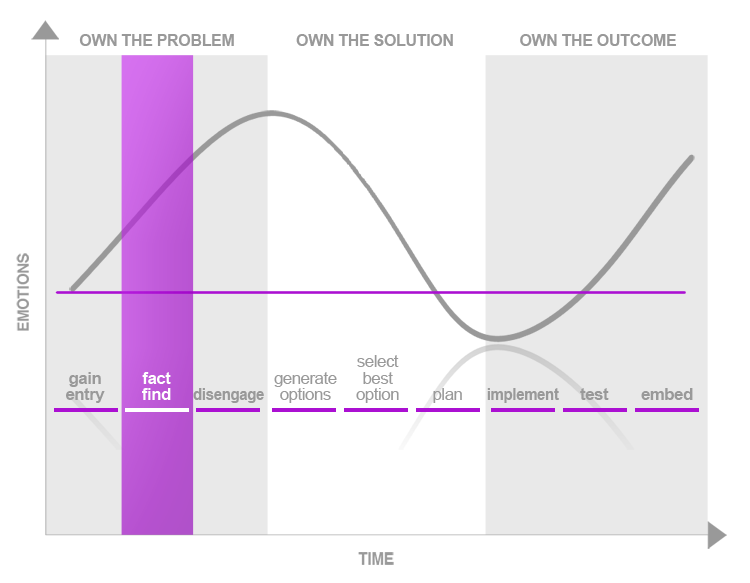Fact Find is also referred to as Joint Diagnosis, and involves gathering lots of information – about the current situation, future aspirations, people’s views and what others are doing.
2. Fact Find
-
Fact Find - gathering relevant information
Fact Find is also referred to as Joint Diagnosis, and involves gathering lots of information – about the current situation, future aspirations, people’s views and what others are doing. As the name suggests, it is an exercise that you undertake together with your stakeholders. The evidence that you gather here will be crucial in determining whether there is a need to change and what that change will look like.
The quality of the information will be affected by how people feel. Some people may be defensive and see an implied criticism in being asked questions about what they do and how they do it. They may not want to reveal too much information, believing this is a way to keep things as they are. Others might have a very fixed view of what the problem is or what needs to change. Your work may uncover evidence to the contrary that challenges long-held perceptions.
In this stage, you can draw on the research you have done as part of Gaining Entry to demonstrate your interest in people. The tools in Fact Find will help you create neutral, confidential and fun environments to gather the evidence you need. Overall, you should be clear with your stakeholders what different sources of evidence you are using, who you are talking to and when. You also need to explain what you will do with the information as well as when and how people will find out the results of your work.
If you miss out this phase, the change will feel like something that is happening behind closed doors. Without an opportunity to provide their input, your stakeholders will not trust the evidence you offer and therefore will find it hard to understand the need to change. You will not understand people’s views and so will not be able to target your change and communications activities appropriately. Moreover, you will often find in this phase that the original diagnosis made by senior managers or leaders needs to be modified in the light of evidence you gather. Without this stage you might provide a solution to a problem that doesn’t exist!


- You must be a registered user to access the Change ToolsPlease select 'Login' from top-right of website and try again
- You must be a registered user to access the Change ToolsPlease select 'Login' from top-right of website and try again
-
Organisations often make the mistake of assessing culture either too late or not at all.

